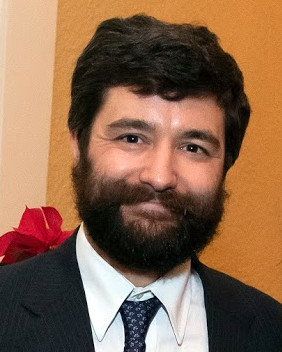Tom Lippincott receives primary appointment from Krieger School of Arts and Sciences
Assistant Research Professor and Center for Language and Speech Processing (CLSP) member Tom Lippincott has received a primary appointment in the Krieger School of Arts and Sciences. Starting on July 1, Lippincott will assume the position of Director of Digital Humanities for the Alexander Grass Humanities Institute (AGHI). He will also hold secondary appointments in the Department of Computer Science and Human Language Technology Center of Excellence.
Previously, Lippincott held a secondary appointment with AGHI, where he already has collaborations underway with faculty in the departments of English, History, and Near Eastern Studies.
“It was tremendously gratifying to learn that scholars in the humanities find our interactions to be as compelling and productive as I do, to the point of committing the resources that made this possible,” Lippincott said. “It reflects a sort of trust and endorsement that’s critical for interdisciplinary research.”
The goal of Lippincott’s research is to develop machine learning techniques that help scholars find interesting patterns in primary sources that may be obscured by normal practices of the field or fundamental limitations of human cognition. Lippincott believes that AI can help historians sift through great quantities of information to tease out and make connections that humans might miss.
Lippincott’s passion for this research began during his undergraduate education at University of Chicago, when he noticed that his interest in humanistic domains – such as literature, poetry, history, and philosophy – was paired with a fundamentally computational way of thinking.
“That basic observation has guided my research trajectory ever since, and I’m excited to see what insights the computational perspective brings when applied to some of our most-venerated cultural artifacts,” Lippincott said. “Machine learning for scholarship in the humanities is limited by how disruptive collaborations can be to both research communities. Participating in them simultaneously will provide a valuable window into how these disruptions can be mitigated, misunderstandings avoided, and collaborations fostered.”
Lippincott plans to remain an active member of the CLSP community, and hopes that this appointment can help expand the center’s research capabilities. Center Director Hynek Hermansky certainly sees it that way, and is excited by what Lippincott’s new appointment could bring to CLSP.
“Computational linguistics is traditionally not applied that much in humanities research, and Tom’s expertise can make a lot of difference there,” Hermansky said. “So, speaking for CLSP, we are excited that Tom’s new appointment is opening this new area in language processing for us.”
Lippincott says that being at Hopkins has been a big factor in his ability to pursue this work, mentioning the practicality and research vision of both the Whiting School of Engineering and KSAS and the enthusiastic engagement from graduate students and faculty at both schools as being immensely helpful. The ability to collaborate and conduct research with fellow CLSP members has also played a crucial role in Lippincott getting to this point.
“The CLSP, in my mind, is what makes this endeavor possible,” Lippincott said. “There are only a handful of places in the world that have drawn together so many exceptional researchers in NLP, and areas like knowledge base construction, optical character recognition, crowdsourcing, and natural language understanding have direct use-cases in the humanities.”



